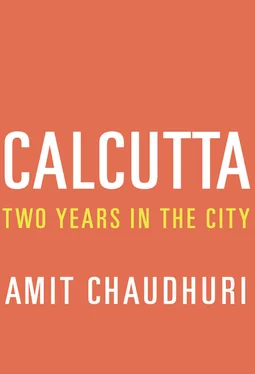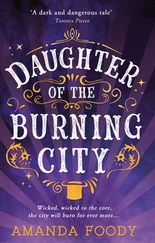A portly gentleman with a conciliatory air came to my table and said he was the chef. He leaned forward and whispered, as you would when warning a reckless friend: “Sorry sir, there’s no ginger pudding left today. We only have Christmas pudding.”
By this time, I’d almost forgotten what ginger pudding tastes like. My foundations had moved slightly; I was ready to accept anything offered to me by that name. I was willing to be naturalised into the “new India,” when the chef’s explanatory words brought back to me a flood of memory.
“I’m sorry, I don’t like Christmas pudding,” I said.
“Indians are not very experimental,” says chef Mukherjee. He gestures towards a handsome, giant jar of black olives in the buffet. “Nobody eats those.” Then adds: “Even cheese. They have no interest in cheese.”
“I see. What kind of cheese do they know then?” For a largely vegetarian middle class, relatively newly empowered, the tepid enthusiasm for cheese is striking. For decades after Independence, Indians made do, happily, with Amul, a tough, feisty, all-purpose government-processed cheese, more an unanswerable piece of legislation than a dairy product, with which it seemed you could do almost anything. Its great virtue was that it took an unthinkably long time to go stale.
“Cheddar,” he replies. “They’ve also heard of the usual stuff — Gouda and Emmental, but not much else.”
“What about olives?” I ask. “Those olives you pointed out are bottled olives. We hardly get fresh olives in India.”
“Indians don’t like fresh olives,” says chef Mukherjee, making it pretty clear he doesn’t like them himself. “They’re extremely salty.” Briefly at a loss, he breaks into Bengali— “Ki rokom ekta kash achhe na?” (“Don’t you think they have an acidic aftertaste?”) It’s an aside: as if we are sharing a little-conceded but incontrovertibly plain fact.
Fresh olives are among the main upper-class travellers of globalisation; they’re also one of its chief acquired tastes. Their saltiness, to the initiate, seems excessive; they then swiftly become addictive.
India has traditionally ignored the olive; and, it seems, the “new India” will continue to do so. Even chef Mukherjee’s bottled black olives, which are duller and less tart than fresh ones, are destined to be looked askance at and avoided by the diner. One lazily presumes the Middle East is closer — spiritually, culturally, geographically — to India than it is to countries like Greece, Italy, and Spain. But the olive’s absence from our lives tells us otherwise. The well-to-do Indian’s view of the olive is still predominantly, and narrowly, Victorian: it’s the putative source of an oil which is occasionally applied to the bodies of infants and the aged.
No wonder Bignotti and Medda wondered, at times, where they were.
Sujan Mukherjee brings a paradox to my attention. “Most chefs worldwide use local, fresh produce and local ingredients.” This is true; the use of local produce in cuisine is a fetish in the capitalist West.
“People here don’t want local produce when they come to a five-star hotel,” he tells me. “They want something from far away.”
That’s odd: because what he’d said so far (confirmed by my own experience of liberalised India) is that the well-off, when they eat out, don’t particularly like engaging with the unfamiliar. Or could it be that they believe they do?
“For example, they’re unimpressed when they see a begoon on the menu,” he says, spontaneously, acerbically, using the Bengali word for “aubergine.” He then approximates the supposedly cursory speaking style of a Bengali customer: “ ‘Why have begoon ,’ they say, ‘when I can get it in the bazaar?’ ”

I’m now beginning to wonder if the Taj Bengal has acquired any foreign chefs after Medda and Bignotti. “In fact we have a foreign chef at the moment,” confesses Sujan Mukherjee brightly. “Really?” “Yes, the head chef at the Chinoiserie, the Chinese restaurant — chef Lian Yu Li of Nanjing.”
“That’s wonderful!” I say. The Chinoiserie is too expensive for even a dedicated and foolhardy eater-out such as myself; I haven’t dared go near it in years. “How does he feel about being here?”
“Oh, he’s very happy!”
“He’s happy to be here?” I’m making comparisons, thinking to myself whether unhappiness and an unrealistic streak of perfectionism (which inevitably leads to unhappiness) are congenital to Europeans like Bignotti and Medda; whether some Asian reserve of contentment and compromise allows Lian Yu Li to feel at home here, and maybe in the world.
“Oh yes!”
“What does he think of Calcutta?”
“He doesn’t have much to do with Calcutta,” says chef Mukherjee, moving in his chair and making a clarificatory gesture. “No, no — he comes to the Taj, goes to the kitchen, then leaves with me for the Taj apartments. We come back together the next day, and it’s the same thing again. He hasn’t seen much of Calcutta at all.” So it’s a cycle of sleep and waking, then, of making dim sum and hot soup; then returning to an apartment and going to sleep.
It’s an intriguing arrangement. Even Calcutta, in the “new India,” can be turned into a kind of non-place: a lounge or lobby which you need never exit, except to finally go to the airport to get on to the flight to Kunming.
“He’s very pleased about the direct flight to Kunming,” reveals chef Mukherjee.

Chinese food has long been Calcutta’s favoured foreign cuisine: it belongs to the eternal, and now paradoxically lost, childhood of the Bengali middle class. Its bottles of soya sauce and Han’s chilli sauce, its minutely chopped green chillies swimming in vinegar, its chicken sweet corn soup, chilli chicken, sweet and sour prawn, spring rolls, and American chop suey are all part of a delectation free of guilt about fried food and unburdened by connoisseur-ship: a simple, elemental pleasure. It goes back, this cuisine, to the time when Calcutta was a Bengali city, and never dreamed it would be otherwise. To the old guard belonged restaurants such as Waldorf (on Park Street), Jimmy’s Kitchen (which my maternal uncle, always emphatic in his loyalties, swore and even threatened by), Mandarin (which was born in the post-Naxal era as a downmarket imitation of the older restaurants), Hatari (a meeting place for middle-class couples, its shabbiness the perfect milieu for its spring rolls), Peiping on Park Street (always preternaturally crowded, I recall from childhood, with every kind of bhadralok, of which little remained when I visited it in the late seventies but its inflated reputation). There are others, except their names elude me. But, even as I formulate that sentence, two return: one is near Statesman House, on Central Avenue on the way to North Calcutta, a mysterious, disreputable place, such as Chinese restaurants — at least the good ones — were classically designed to be; and another one is located on the “arcade” on Chowringhee near the Grand Hotel, on the vestibule thronging with tourists, locals, magazine vendors, blind beggars, and sellers of little plastic toys, to which my father came once weekly (so he’d told me in his lucid days), when he was a student, for the pure, solitary joy of a plate of American chop suey. I know the first one no longer exists; the second, even if it does, as good as doesn’t. I’ve seen them both at some point in my life, but can’t summon up their names. I go to R, a truer Calcuttan than I, and describe the first one; “I know the place you mean — wasn’t it Nanking?” I dismiss the suggestion outright. I go to my father and ask him, very loudly, if he can recall the Chinese restaurant he used to visit on Chowringhee. At first, alarmed by the volume at which I’m speaking, he’s anxious, and worried that something’s wrong; then he’s got it, his face is lit by a smile of comprehension, he nods vigorously. He still has the ability to remember many things, my father, but can’t any longer express himself coherently. “Is it the Hong Kong?” I ask loudly but, I hope, tenderly; he shakes his head, the Hong Kong rings no bell. It’s my maternal uncle, finally, who supplies the names over the phone; at eighty-five, he’s clear-headed and still a great advocate of those restaurants. “That was Nanking near Statesman House!” he exclaims, proving my disagreement with R, a bona fide Calcuttan, was ill-advised. “What an amazing place it was! I took my in-laws to eat there soon after I was married. It wasn’t much to look at from the outside, so they weren’t sure about it — but they loved the food!” He’s puzzled by the second one; there was never a Hong Kong restaurant in Calcutta, he says. Then he knows the one I mean: “New Cathay — of course, New Cathay! Fantastic place!” That’s it. When I tell my father, he nods, his eyes bright, and mumbles the name. He’s relieved I have my answer. When my uncle says “New Cathay,” and I repeat the name to him, then to my father, a sensation passes through me, an imperceptible lifting of the diaphragm, as if the excitement might, who knows, make me weep — not for my father, not for New Cathay, but for something gone, which I can no longer make present.
Читать дальше













